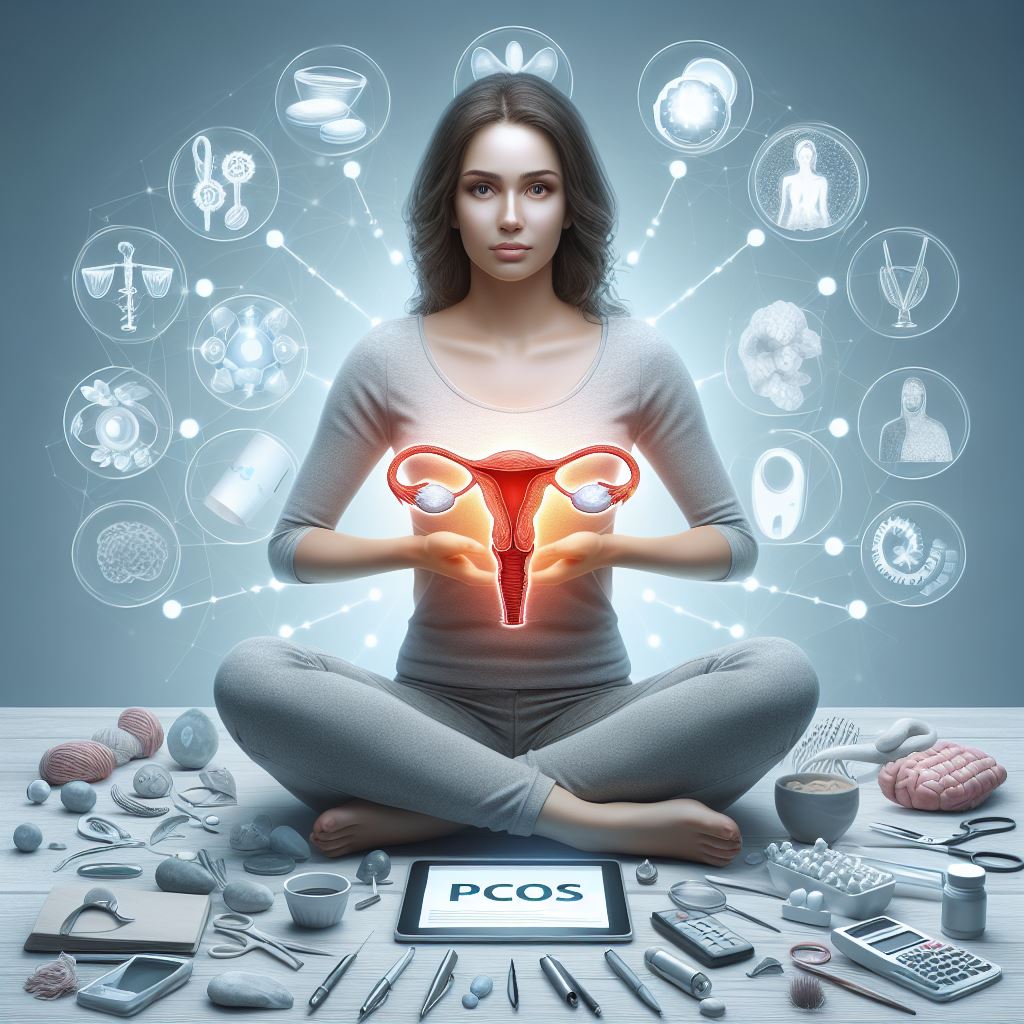Explore the complexities of PCOS with our comprehensive guide. Uncover symptoms, diagnosis, and treatment options for this common endocrine disorder. Empower yourself with knowledge and take control of your health. Read on for expert insights into managing PCOS effectively. Your health, our priority
Polycystic Ovary Syndrome (PCOS) is a prevalent endocrine disorder affecting women of reproductive age, characterized by a combination of symptoms that can impact menstrual function, fertility, hormone levels, and physical appearance. This comprehensive guide aims to shed light on the symptoms, diagnosis, and treatment options for PCOS, empowering women with the knowledge to navigate this condition.
What is PCOS?
PCOS is a condition that affects the ovaries, the reproductive organs responsible for producing estrogen and progesterone — hormones that regulate the menstrual cycle. It's marked by the development of numerous small, fluid-filled sacs called cysts within the ovaries¹.
Symptoms of PCOS
The symptoms of PCOS can vary widely from one individual to another but commonly include:
- Irregular Menstrual Cycles: Women with PCOS may experience missed, irregular, or prolonged periods.
- Excessive Androgen Levels: High levels of male hormones may result in physical signs such as hirsutism (excessive hair growth), severe acne, and male-pattern baldness.
- Polycystic Ovaries: Enlarged ovaries containing numerous small cysts can be detected via ultrasound.
Causes and Risk Factors
While the exact cause of PCOS is unknown, several factors are thought to play a role:
- Genetic Predisposition: A family history of PCOS increases the risk.
- Insulin Resistance: High insulin levels can increase androgen production, causing difficulty with ovulation.
- Inflammation: Women with PCOS often have increased levels of inflammation in their body.
Diagnosing PCOS
Diagnosing PCOS involves a combination of clinical evaluation, laboratory tests, and imaging:
- Medical History and Physical Exam: A healthcare provider will review symptoms, medical history, and perform a physical exam.
- Blood Tests: These can check hormone levels and glucose tolerance.
- Ultrasound: This imaging test can visualize the ovaries and assess the presence of cysts¹.
Treatment Options
Treatment for PCOS is tailored to each individual's symptoms and concerns, such as managing infertility, metabolic issues, or cosmetic concerns:
- Lifestyle Changes: Weight loss and exercise can improve the effectiveness of medications and help reduce PCOS symptoms.
- Medications: Birth control pills, anti-androgens, and other medications can help regulate the menstrual cycle and reduce symptoms.
- Surgery: In some cases, procedures like ovarian drilling can be considered to induce ovulation¹.
Living with PCOS
Living with PCOS can be challenging, but with the right treatment plan, symptoms can be managed effectively. It's essential for women with PCOS to maintain regular check-ups with their healthcare provider to monitor their condition and adjust their treatment as needed.
Polycystic Ovary Syndrome (PCOS) is more than just a medical condition; it's a journey that many women embark on together. It's a path marked by challenges, but also by a strong community of support and understanding. If you're dealing with PCOS, know that you're part of a global "cysterhood," a network of resilient women who share your experiences, your struggles, and your victories.
PCOS can affect various aspects of your health and daily life, from irregular menstrual cycles and fertility issues to metabolic concerns and self-esteem. But amidst these trials, there's hope and a multitude of resources available to help you manage your symptoms and lead a fulfilling life.
Organizations like the [PCOS Awareness Association] and platforms like [PCOS Diet Support] offer valuable information, guidance, and encouragement. They remind us that lifestyle changes, such as a balanced diet and regular exercise, can significantly improve PCOS symptoms and overall well-being. Moreover, these communities provide a space to connect with others who understand what you're going through, ensuring that no one has to face PCOS alone.
Remember, your journey with PCOS is unique, and so is your strength. With each step, you're not just managing a condition; you're setting an example of courage and resilience. You're not alone, and with the support of fellow "cysters," healthcare professionals, and dedicated organizations, you can thrive despite the challenges of PCOS. Keep pushing forward, and let the shared stories and successes of others inspire you to embrace your health and happiness. You are strong, you are capable, and you are part of a community that stands with you.
Conclusion
PCOS is a complex condition that requires a comprehensive approach to diagnosis and treatment. By understanding the symptoms and available treatments, women with PCOS can take proactive steps towards managing their health and improving their quality of life.


























